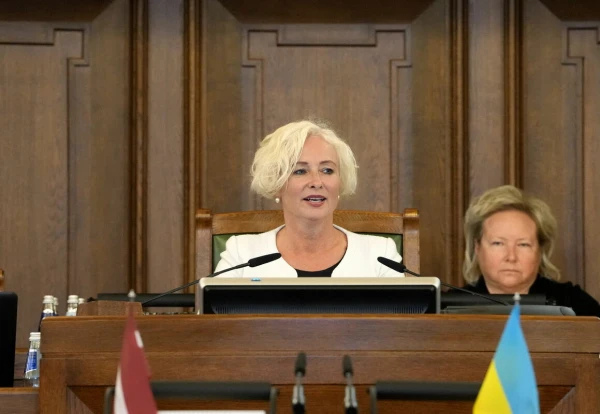
Particular attention is paid to sustainable development in such megacities.
According to the Global Innovation Index 2025, published by the World Intellectual Property Organization (WIPO), countries and megacities that actively invest in innovations and integrate them into everyday life are becoming leaders in technological progress.
1. Zurich (Switzerland)
Zurich's success as a "smart city" is based on the well-thought-out Smart City Zürich strategy launched in 2018. The city uses digital platforms to monitor and optimize traffic, manage waste, and improve public services.
The Open Zurich project ensures data transparency and fosters collaboration between the government, startups, and urban planners.
The digital ecosystem encompasses transportation and energy: the ZVV app integrates buses, trains, and electric scooters into a single system, while heat generated by industrial enterprises is used for heating and cooling buildings. Modern tools—augmented reality and "digital twins"—help design safer and more sustainable structures.
2. Oslo (Norway)
Since 2019, Oslo has held second place in the global smart city rankings, receiving the highest AAA rating for its leadership in sustainable and inclusive development. The city, awarded the title of "European Green Capital," continues to set ambitious environmental goals.
Electric vehicles account for 40% of all private cars and 90% of new sales (as of 2024). The FutureBuilt program, which includes 50 projects, promotes low-carbon architecture near transport hubs.
About 60% of Oslo's energy comes from hydro sources, and the Oslo Toll Ring system encourages the use of zero-emission transport and directs fees towards "green" infrastructure projects.
3. Geneva (Switzerland)
Geneva has strengthened its position in the Smart City index, once again receiving an AAA rating, confirming Switzerland's leadership in innovation. As part of the Smart Canton program, the city actively implements digital technologies in its infrastructure.
Particular attention is paid to sustainable development. The TetraEner project combines renovation and new construction, increasing the share of renewable energy. The Geneva Lac Nations program connects buildings to a hydro network that provides heating, cooling, and irrigation.
The LoRaWAN network is used to monitor environmental parameters and optimize energy systems. Geneva also ranks highly in education levels, citizen participation in decision-making, and the number of green spaces.
4. Dubai (UAE)
Dubai has made an impressive leap—rising from 12th to 4th place in the Smart City Index 2025. Its ambition is to become "the happiest and smartest city on Earth," relying on artificial intelligence and digital technologies.
The city's strategy is built on six pillars: economy, life, governance, ecology, people, and mobility. Intelligent transportation systems with thousands of sensors and cameras reduce traffic congestion by 20%, while the road agency regulates traffic in real-time.
Dubai actively implements "green" initiatives: the DEWA Smart Grid and Dubai Silicon Oasis projects enhance energy efficiency and support the UAE's goal of achieving 75% clean energy by 2050.
5. Abu Dhabi (UAE)
The capital of the UAE has risen from 10th to 5th place, strengthening the region's position on the global stage. In 2024, the Zayed Smart City project was launched—a five-year program utilizing artificial intelligence and the Internet of Things (IoT).
Pilot zones on the Corniche are already testing "smart" lighting, parking, and traffic management systems. The TAMM digital platform has consolidated hundreds of government services into one online portal, reducing paper use by over 90%.
The city actively promotes electric and hybrid vehicles, developing a network of charging stations as part of the Sustainable Energy Strategy aimed at achieving carbon neutrality by 2050.
6. London (United Kingdom)
London has become a pioneer in creating a sustainable city, implementing initiatives such as the congestion charge, contactless payments, and the ultra-low emissions zone (ULEZ).
By 2025, the installation of a 2000-kilometer network in the subway is planned, ensuring seamless 4G and 5G coverage in all trains and tunnels.
Open data platforms allow startups and developers to create services based on urban information: from smart parking to environmental monitoring systems. All this helps reduce congestion and improve the quality of the urban environment.
7. Copenhagen (Denmark)
Copenhagen ranks seventh in the Smart City Index 2025. The goal set back in 2009—to become the world's first carbon-neutral city by 2025—remains central to its development strategy.
The city focuses on three priorities: achieving carbon neutrality, sustainable living, and economic growth. 62% of residents commute to work by bicycle, utilizing a network of 400 kilometers of bike lanes.
Investments in infrastructure and the Copenhagen Connecting program will bring about 600 million euros in socio-economic benefits, solidifying the city's status as a leader in sustainable innovation.
<iframe width="560" height="315" src="https://www.youtube.com/embed/YOtMgzGm8mk?si=nyb-LQBDYxfD9HQd" title="YouTube video player" frameborder="0" allow="accelerometer; autoplay; clipboard-write; encrypted-media; gyroscope; picture-in-picture; web-share" referrerpolicy="strict-origin-when-cross-origin" allowfullscreen></iframe>











